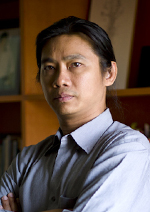With a deficit in trust between the government and Burma’s ethnic minority groups, the latter’s leaders were wary as they gathered in Karen State this week. One of the chief concerns at the conference, held in Law Khee Lar, was remarks reportedly made by Snr-Gen Min Aung Hlaing in November.
Speaking to a group of officers in Naypyidaw, the commander-in-chief reportedly defended the army’s operations in Kachin State and cast blame for violence there on ethnic Kachin rebels, while also saying his troops were “afraid of no one.” The comments came to light earlier this month after local Burmese daily True News printed the speech in full, with the newspaper saying it had obtained a transcript of the remarks.
The senior general went on to say the armed forces, known as the Tatmadaw, would “forever follow the policy laid down by Snr-Gen Than Shwe,” Burma’s former military supremo who stepped down from the top post in 2011.
The former general retired, but only after he had hand-selected Lt-Gen Thein Sein to succeed him in 2011 as the nominally civilian leader of a changing Burma.
The provocative comments, said to have been leaked from the War Office, were made at a closed-door meeting on Nov. 29 and did not appear in state-run newspapers.
Min Aung Hlaing served under Than Shwe when he was regional commander in Shan State in the 1980s, and there is little doubt that he is a faithful follower of his former boss. Like other senior leaders of Burma’s nominally civilian government and military, he regularly pays his respects at the retired general’s residence in Naypyidaw.
Min Aung Hlaing’s comments raised eyebrows—and earned some ire—among ethnic groups who came together this week in Law Khee Lar, along the Thai-Burmese border. Min Aung Hlaing has met before with Karen leaders of the Karen National Union in Naypyidaw, but he hasn’t yet had face time with the leaders of any of the other major ethnic armed groups.

Some observers have suggested that the fighting in Kachin State, the fiercest of which took place in late 2012 and carried on into 2013, caused Min Aung Hlaing to lose standing among top commanders due to the heavy casualties suffered by the Tatmadaw. At the same time, his order to use air power to attack Kachin troops also made him unpopular among ethnic groups, particularly within Kachin State.
Min Aung Hlaing first caught the attention of most observers in August 2009, when the then major general oversaw a military offensive against the ethnic Kokang armed group known as the Myanmar National Democratic Alliance Army. A graduate of the 19th intake of the elite Defense Services Academy, he has spent most of his military career in border regions, particularly in Shan and Karenni states.
Now, observers and diplomats are wondering whether this tough-talking general will soon enter the political fray.
In November, Brig-Gen Wai Lin, a Lower House MP who leads military lawmakers in Parliament, told The Irrawaddy that he expected Min Aung Hlaing to be a leading candidate for the presidency. Wai Lin said military parliamentarians want to nominate Min Aung Hlaing for president following national elections in 2015. The plan is possible because the country’s president is elected by Parliament, where military officers hold a quarter of the seats.
Is the senior general interested in the post? He is a presidential aspirant “with the blessing of Than Shwe,” some say, but Min Aung Hlaing has not disclosed his intentions publically.
Notably, Min Aung Hlaing’s public profile appears to be on the rise, with the senior general frequently appearing at state-sponsored ceremonies and splashed across front pages of the various state-run newspapers. Whether or not he was given a green light to go public is another question. Some senior army officers recently told The Irrawaddy that he has been turning some of his duties over to Gen. Soe Win, deputy commander-in-chief of the armed forces.
Rumors of Min Aung Hlaing’s impending retirement abound, and others predict the senior general will continue to lead a very public life.
“In Burma, if you are not a competent fighter in the armed forces, you are asked to go to a civilian post,” said a Western diplomat in Rangoon, implying that the heavy casualty count in Kachin State may be a factor in Min Aung Hlaing’s future professional trajectory. “It means Min Aung Hlaing could become president.”
With that in mind, ethnic leaders and dissidents are no doubt worried about the precedent that could be set if the country’s young experiment with democracy sees another “former” general ascend to the presidency.
As ever in Burma, uncertainty prevails and all the players—particularly ethnic groups—are formulating back-up plans and reviewing political strategies.
Hoping for the best, preparing for the worst.

















